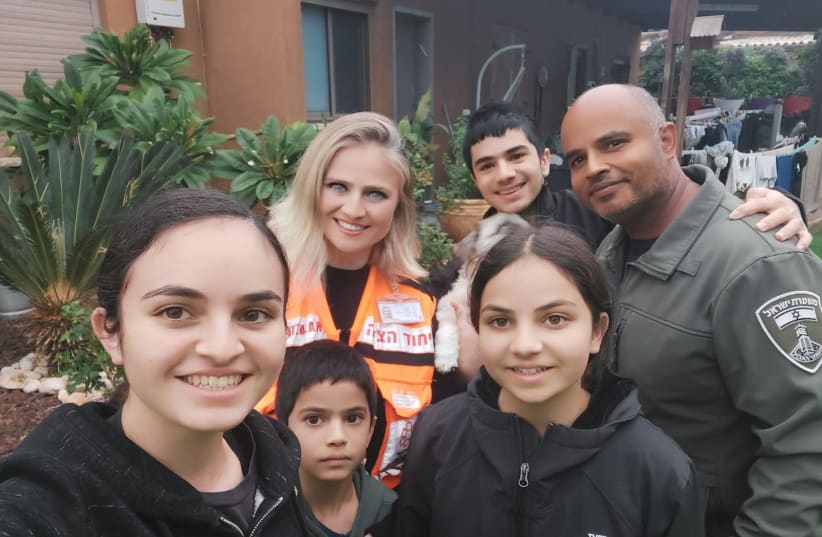Vicky Tiferet, a volunteer EMT with United Hatzalah from Moshav Yuval in northern Israel, has been tapped to become the first female head of the organization at the Emek HaHula chapter.
A secular Russian immigrant who is also disabled, Tiferet was recognized for her service with the appointment, along with recently receiving the Korenvaes Miracle Award on Hanukkah.
United Hatzalah seeks to cater to the different cultural makeups of the communities they operate in, meaning more religious communities such as Bnei Brak and Beitar Illit have different events than Herzliya, Kfar Qassem, or the Central Negev.
Tiferet spoke of her recent appointment, saying, “I don’t look at it as something grandiose. This position will allow me to more easily help my fellow first responders in providing as high a level of emergency care as they can.
"This is an important role and one that I take seriously and I look forward to continuing to learn from and working with my colleagues and other chapter heads, as well as my team of terrific first responders here in Emek HaHula who over the years have become a family in itself,” she added.
Teferet immigrated from Russia in 1991 at the age of 9 and lives with her husband and four children. Her journey to becoming an EMT came following her diagnoses with a chronic medical condition called Ankylosing Spondylitis (AS), a chronic disease that causes inflammation of the joints and spine. Tiferet also became a massage therapist in order to help others suffering from back pain and spinal issues.
Beyond her work with United Hatzalah, Tiferet is a member of the organization Ten Kavod (Giving Honor), which encourages volunteers to visit lonely elderly patients, as well as being a regional coordinator of the Psychotrauma and Crisis Response Unit (PCRU) for the Hula Valley and Golan Heights.
“Due to AS, I live with pain 24/7 and every day that passes is another day closer to the time that I will have to use a wheelchair to get around,” Tiferet explained. “Whenever I wake up, I need to perform a series of exercises before I can move my limbs without serious pain. It makes getting up in the middle of the night to rush out to medical emergencies extremely difficult.
"But I do it and I do it with love. Because the thing that keeps me healthy is the adrenaline rush that I get every time that I respond to an emergency. It does me good to help others. I believe that what happens with most of our illnesses is that they are somewhat diminished if we are happy and spiritually healthy,” she concluded.
